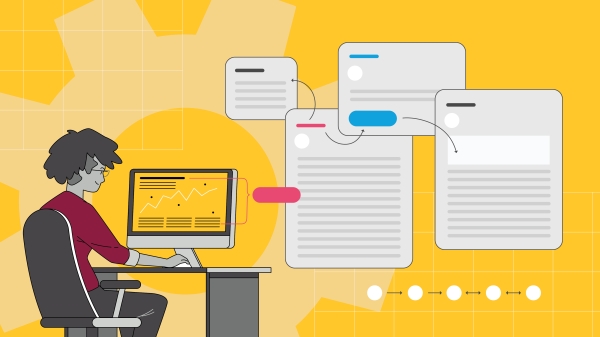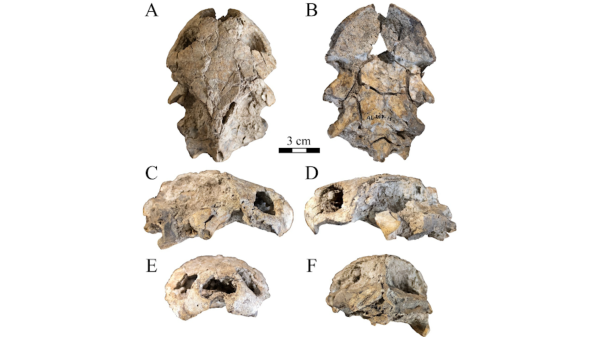ASU Library hosts inaugural data science conference

Program Manager Kerri Rittschof and Director Michael Simeone from the Data Science and Analytics unit at ASU Library.
The data science field is rapidly expanding, but is often driven by the private sector, which monetizes data.
On Wednesday, June 8, nearly 50 people from three dozen academic institutions across the country virtually attended the inaugural meeting of data science in libraries, hosted by Arizona State University, to tackle the question: What does a library perspective mean to data science?
“The ASU Library’s Data Science and Analytics team wanted to bring together our colleagues to share our activities and imagine new work in data science that could happen in libraries,” said Michael Simeone, director for data science and analytics at ASU Library. “The goal of data science in libraries isn’t to echo Google and Facebook, but to introduce more people to the practice of data science and meet the needs of our students, faculty and staff. We want to understand what the unique contributions of libraries can be when it comes to data science.”
What is data science?
More than a discipline, data science is a direction that allows exploration using models and visualizations to shift thinking from understanding to prediction. The ASU Library’s Data Science and Analytics unit was established in 2016. At the time, data science units within libraries were unique, but quickly became common at academic libraries.
By offering workshops, open labs and research consultations, data science units engage machine learning; data analytics; visual storytelling; network analysis; and text and data mining. Working within the heart of the university, libraries help people in disciplines ranging from the humanities and social sciences to engineering and math with research and coding.
The conference introduced several topics covering activities to challenges, and successes to collaborations, that attendees discussed through Zoom. Events and workshop series like “Data and Donuts” to “Data at your Desk” introduced students and faculty to various data science topics, like R and Python programmingR is a statistical language used for the analysis and visual representation of data. Python is a high-level, interpreted, general-purpose programming language better suitable for machine learning, deep learning and large-scale web applications.. When the pandemic started, data science units shifted their events online and found success attracting audiences virtually.
Program Manager Kerri Rittschof and Library Data Scientist David Little helped lead a team from across ASU Library to facilitate the conversations.
"'I didn’t know libraries offered data science!’ is an often-heard expression, and we wanted to hear how units are telling stories about how they transform a student’s career or a faculty’s research project,” said Rittschof. “We were thrilled with the outcome and that we, the attendees, want to work together, coordinate events, share resources, and not wait until next year to get back together.”
Many data science units see success by partnering and collaborating across campus. At ASU, the library's Data Science and Analytics unit has worked with biologists, social scientists, engineers, geographers and nonprofit organizations.
‘The library is your lab’
In addition to workshops, data science units work with classes, develop training materials and join platforms that promote discovery. One unit offered a machine learning club on Discord.
“We’re teaching people how to use tools and become competent with those tools,” Simeone said. “This meeting gave all of us inspiration for the work moving forward to continue developing new events, research opportunities and collaborations.”
Data science in libraries offer students, faculty and staff upskilling opportunities. One attendee shared the phrase “The library is your lab” as a reminder for how libraries continue to be places of discovery that reach all programs and disciplines at the university.
For more information about the Data Science and Analytics unit, as well as upcoming events, contact [email protected].
More Science and technology

When facts aren’t enough
In the age of viral headlines and endless scrolling, misinformation travels faster than the truth. Even careful readers can be…

Scientists discover new turtle that lived alongside 'Lucy' species
Shell pieces and a rare skull of a 3-million-year-old freshwater turtle are providing scientists at Arizona State University with…

ASU named one of the world’s top universities for interdisciplinary science
Arizona State University has an ambitious goal: to become the world’s leading global center for interdisciplinary research,…